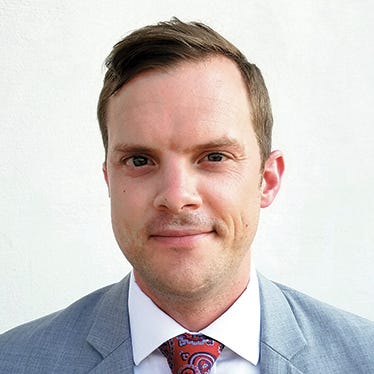eMoney Piloting Outsourced Financial Planning ServiceeMoney Piloting Outsourced Financial Planning Service
The financial planning software developer is piloting a program to bring back-office financial plan capabilities to advisors and broker/dealers.

eMoney is gathering feedback from advisors at this week’s virtual eMoney Summit for an outsourced back-office financial planning service it is piloting, called Collaborate Planning Services, according to executives at the firm. The previously unreported program has been under development for 18 months and in pilot since May.
The new service is designed to provide advisors' end-clients with goals- and cash flow–based financial plans, according to advisor needs. Pricing has not been determined yet.
As part of the pilot, eMoney is creating its own RIA, eMoney Planning Services LLC, to provide financial plans through its own team of approximately 20 CFPs, according to Matt Schulte, head of financial planning at eMoney. The service will not be client facing, he emphasized.

Matt Schulte, head of financial planning at eMoney, presenting during the virtual eMoney Summit.
“Outsourced planning is really just the next level of some of these things that we already build off of our current service model,” said CEO Ed O’Brien. eMoney already provides in-depth firm-level consulting, under its Accelerate program, and advisors may already be familiar with the data entry services and one-off consultative help provided by the eMoney client service team. This new back-office service would supplement those programs.
eMoney is inviting firms that expressed interest in a back-office planning solution in the past and expects to provide more details on the pilot program early next year, said Schulte.
Possible use cases range from stopgap planning for smaller firms unexpectedly without a planner (due to departures or vacation, for example), all the way to dedicated back-office planning for enterprises and larger independent broker/dealers that are considering building their own financial planning desks.
eMoney’s CFPs will be using eMoney software, perhaps with templates for scale or to focus on a specific niche or specialization of the firm they’re working with, but they won’t be interacting with end-clients. Advisors using this service should be thinking about the CFPs provided by eMoney as "back-office technicians."
“It isn’t just: we’re taking the data. We’re doing this. And we’re delivering to the end-client,” Schulte said. “We grab that data, we enter it, we go through some permutations on a plan—but then there's an iterative process back and forth between us and the advisor to familiarize them with the plan to familiarize them with the goals and the specifics about what's going on.”
There's room for customization and nuance, as well as growth. “We may start approaching more regional broker-dealers or smaller, independent broker-dealers who maybe don't have the wherewithal to build [a planning desk] out on their own," said Schulte.
While not originally the intent behind its university certification program, the firm’s relationship with dozens of financial planning–focused university programs could provide the new service with well-trained recent graduate planners, should the program need to scale, he added. In turn, the new staff would potentially benefit from mentorships with more experienced planners already employed by eMoney.
The coronavirus pandemic has shifted some wealth managers' appetite for such services, said Schulte. While some advisors and firms had expressed interest in a back-office-planning service prior to the coronavirus pandemic, the industry has warmed to the idea of outsourcing planning as more advisors learn what it’s like to work remotely in 2020. Advisors who may have been reluctant to shift planning to an outside entity have “gained confidence that they can still own the process and still be the ones delivering the advice,” he said.
Delivering advice to clients is exactly what advisors using the back-office service will be doing—eMoney is not planning to step into that business, said Schulte. “At the end of the day, we're not supplanting them as the owner of that relationship," he said. "Our job is best done when we create that team kind of atmosphere that they may feel right now inside their office. They'll simply feel that with us, as a third party."
About the Author
You May Also Like







